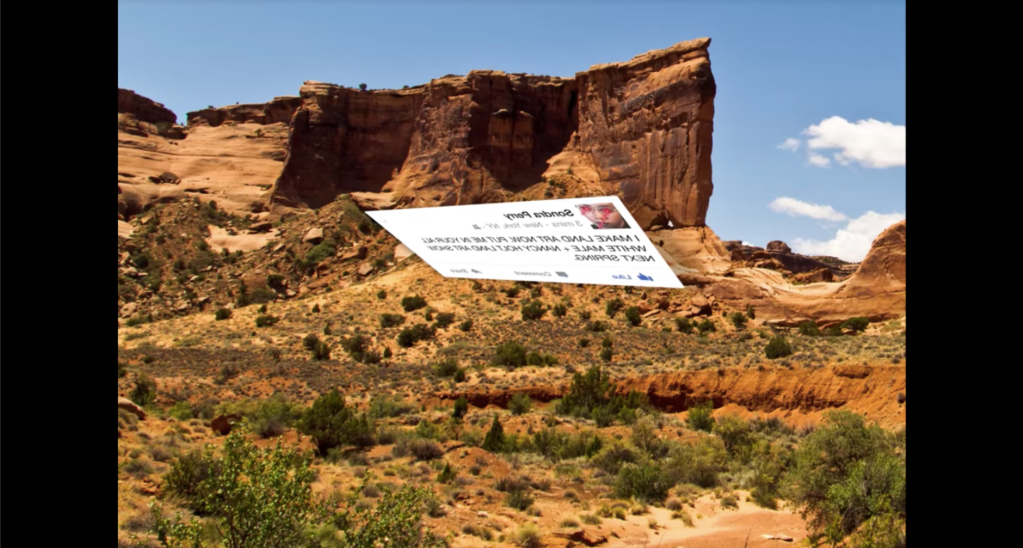
20 ideas receive support from Knight Prototype Fund for media and information projects
Above: Photo credit Flickr user PistoCasero.
Today we’re announcing the 20 winners of the latest round of funding from the Knight Prototype Fund. Through this initiative, Knight Foundation’s Media Innovation team supports early-stage media and information projects with $35,000 in support, design training and peer networking opportunities. The winning teams recently joined Knight in Miami for a two-day human-centered design workshop with the LUMA Institute, where they learned strategies for developing solutions with end users in mind. Each team will have six months to take their ideas from concept to demo.
The winning teams are working on a wide range of civic technology and media projects. A number of projects focus on collecting and sharing information to improve our cities. Projects such as the Street Quality Identification Device (SQUID) will use sensors to collect data about road conditions in New York to help city planners deploy resources more effectively. Another project, Citygram, spearheaded by the Code for Charlotte brigade of Code for America, is developing a platform for local governments to send civic events and information to citizens.
Many projects in this cohort reflect an ongoing commitment to the development of media tools. A team from Vocativ is working on the Data Proofer project, a desktop app designed for journalists to quickly assess the quality of their data before they begin reporting, analyzing or visualizing it. Another project, Hudson, is developing an app that suggests content to read, watch, and listen to based on consumption patterns and user preferences.

Above: 18 of the 20 Prototype Fund winners. Photo credit: Eva Pereira.
These teams join an expanding network of innovators seeking to leverage technology to build products that better serve information needs. Select projects have the opportunity to receive follow-on support from Knight Foundation to help projects grow and scale. Past recipients of follow-on support include Heartmob, Storycorps, GovLoop and OSET Foundation.
The next round of the Knight Prototype Fund is open until Monday, Nov. 16. We’re looking for U.S.-based organizations with projects that explore media, journalism and civic information needs. To learn more and to apply, please visit prototypefund.org.
If you have specific questions about the application process, we will be holding office hours Wednesday, Nov. 11, and Thursday, Nov. 12, from 1-2p.m. ET. You can join online or by telephone (1-888-240-2560, Meeting ID: 315 727 365).
Eva Pereira is a media innovation associate at Knight Foundation. Follow her on Twitter @evanpereira and email her at [email protected]. Follow the 20 teams on Twitter here.
The organizations and people receiving investments in this Prototype Fund round are:
Pilgrim by Are.na (Project leads: Daniel Pianetti and Charles Broskoski | New York): Helping researchers find related articles, images, academic papers, text and more through an open-source, intelligent Web crawler that gathers this online data.
Billcam by DailyCloudt Inc. (Project lead: Stephanie Sharis | Berkeley, Calif.): Adding transparency to the legislative process through an embeddable, shareable legislative tracking tool that connects federal and state bills and corresponding community annotation with relevant news articles, information, topical blog posts and more.
Canaree.io by Startup Policy Lab (Project lead: Charles Belle | San Francisco): Simplifying government data requests through a Web-based application that helps startups navigate law enforcement requests for consumer data and protects user privacy.
Carebot by NPR (Project lead: Brian Boyer | Washington, D.C.): Changing how newsrooms measure and celebrate success by measuring the things that actually matter: Did people complete the story? What proportion shared it? Did we make them care?
Catamount by Vermont Journalism Trust (Project lead: Stacey Peters | Montpelier, Vt.): Helping journalists provide their readers with more meaningful information by building a WordPress plugin that automates integration between news stories and data sets with contextual and historical details; for example, a story about a politician could provide a link to his top donors.
ClaimBuster by University of Texas at Arlington (Project lead: Chengkai Li | Arlington, Texas): Helping journalists fact-check statements made by politicians in real time using a machine-learning tool that automatically identifies factual claims likely to be important to the public.
CityGram by Code for Charlotte (Project lead: Jill Bjers | Charlotte, N.C.): Making it easier for local governments to connect with citizens by creating a notification system that allows users to receive information from the government by selecting a geographic area, category and delivery method for the notifications.
ClearGov.com by ClearGov Inc. (Project lead: Chris Bullock | Hopkinton, Mass.): Helping citizens better understand local government finances through a website, which will include easy-to-understand infographics and benchmarking data that allows them to compare these finances to similar towns. The site will also serve as a platform for local governments to engage with citizens and improve transparency.
Dataproofer by Vocativ (Project lead: Gerald Rich | New York): Helping data journalists and others check whether a data set is accurate or contains errors through an app that lets users assess the quality of their data before they begin reporting, analyzing or visualizing it.
Hudson App by Run Hop (Project lead: Pete Davies | San Francisco): Making it easy and fun to discover things to read, watch and listen to through an app that sources from social signals and curated channels. Join the beta at gethudson.com.
Local/Municipal Election Dates and Deadlines Data Management System and API by U.S. Vote Foundation (Project lead: Susan Dzieduszycka-Suinat | Arlington, Va.): Helping to increase voter engagement by creating a nationwide system to collect, maintain and distribute information on upcoming local election dates and deadlines.
LPFM Radio Impact Maps by Prometheus Radio Project (Project lead: Paul Bame | Philadelphia): Helping radio stations understand and better engage with audiences, funders and volunteers by creating software that maps interference and population demographics for low-power FM (LPFM) radio stations in an inexpensive and straightforward way.
IdeaMapr by Bouldin Labs (Project lead: Matt Hall | Austin, Texas): Helping communities collaborate with local government on complex civic decisions by developing an online tool that guides people through the decision-making process and creates a map of conversations that charts questions, ideas, and pros and cons.
Mapquery by Quartz (Project lead: Keith Collins | New York): Making the creation of geographic maps easier and more accessible by creating a system for finding, merging and refining geographic data.
Municipal Financial Index by Centro de Investigación y Política Pública (Project lead: Arnaldo Cruz | San Juan, Puerto Rico): Providing people with straightforward information on municipal finances through an interactive user-friendly graphic interface that people can use to assess the fiscal condition and spending priorities of their city.
OpenStreetMap Data Quality Analysis Tool by Humanitarian OpenStreetMap Team United States Inc. (Project lead: Blake Girardot | Washington, D.C.): Helping journalists, humanitarians, academics, government officials and others determine the quality of data in the OpenStreetMap database for a user-defined area, depending on the topic of interest.
Pteraform by Simiary (Project lead: Ben Adams | Santa Barbara, Calif.): Helping users learn more about places around the world and how a particular topic varies geographically through an open platform that uses an interactive world map to chart search results. The project is a follow-up to Frankenplace.
@Stake by The Engagement Lab at Emerson College (Project lead: Eric Gordon | Boston): Helping community and group decision-making processes through a role-playing game that fosters democracy, empathy, and creative problem solving for civic issues.
Street Quality Identification Device (SQUID) by Argo Labs (Project lead: Varun Adibhatla | New York): Helping city agencies make better decisions on street maintenance by creating a low-cost sensor platform that collects and analyzes data through street surface imagery.
Together We Listen by New York Public Library and The Moth (Project lead: Alexandra Kelly and Michael Guerra | New York): Making digital audio collections from libraries and public media organizations more accessible by combining the auto-transcription services of Pop Up Archive with a community engagement model that will involve the public in updating and enriching these collections.
Recent Content
-
Artsarticle ·
-
Artsarticle ·
-
Community Impactarticle ·


